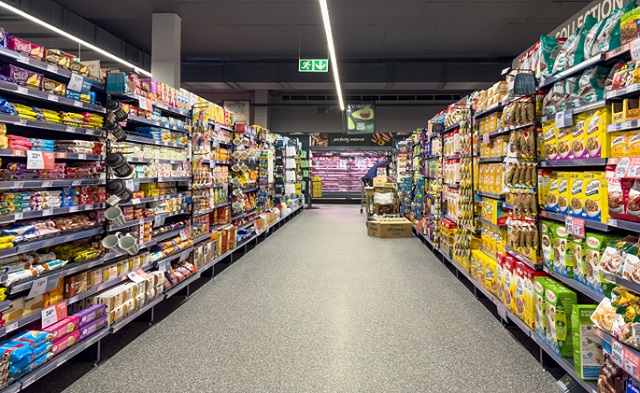
OPINION | Julius Businge | In Uganda’s rapidly growing retail landscape, supermarkets like Carrefour, Quality Supermarket, Capital Shoppers, Fraine, and Mega Standard play a key role in promoting local businesses.
Nakumatt, Uchumi, Tuskys (all Kenya-based), Game Stores, and Shoprite (South Africa-based) have in recent years quit the Ugandan market citing an unprofitable working environment among other factors.
Through the Buy Uganda, Build Uganda (BUBU) initiative, the new stores are filling their shelves with various Ugandan-made products, ranging from non-food items to fresh produce and beverages- critical for generating jobs and improving the social life of farmers and suppliers in the value chain.
Walking through Ugandan supermarkets today reveals a growing shift highlighting the country’s increasing reliance on homegrown goods.
Thanks to BUBU, locally made products are steadily replacing imported goods, transforming shopping experiences and fueling the economy in unexpected ways.
For instance, Carrefour, one of Uganda's most prominent supermarket chains in Uganda, has fully embraced this movement, dedicating over 80% of its shelf space to Ugandan-made products.
This shift not only aligns with the government’s BUBU policy but also empowers local manufacturers to scale up, innovate, and meet the growing demand for homegrown goods. The Buy Uganda, Build Uganda policy was approved by the Cabinet in 2014 and officially launched in 2017.
It aims to promote the consumption and procurement of locally produced goods and services, thereby fostering economic growth, self-reliance, and self-sufficiency.
The policy encourages both foreign and local investors to prioritize local production, enhancing the capacity of Ugandan producers to meet government procurement needs.
Additionally, BUBU seeks to improve the quality and competitiveness of Ugandan products in both local and international markets. By supporting local production, the policy intends to create employment opportunities and contribute to Uganda’s journey toward achieving middle-income status.
Other supermarkets are largely doing the same. Multiple data from government entities indicate that the percentage of goods sourced locally by supermarkets in Uganda varies depending on the specific chain and product category.
On average, Ugandan supermarkets source a significant portion of fresh produce and other goods locally, though they often rely on imports for processed items and specialized products.
Supermarkets in Uganda typically source 70-90% of their fresh produce locally, including fruits, vegetables, meat, dairy, and poultry. This high level of local sourcing is largely driven by Uganda’s strong agricultural sector, which offers a diverse supply of fresh goods.
When it comes to staple foods such as grains, beans, and flour, around 60-80% are sourced locally. Many supermarkets carry Ugandan brands of maize flour, rice, and beans, all of which are produced within the country. However, for processed and packaged goods—such as snacks, canned foods, beverages, and toiletries—supermarkets tend to rely more on imports. Local sourcing for these products is lower, typically ranging from 20-40%, with many of these items coming from Kenya, South Africa, and other international suppliers.
In the beverage sector, local sourcing remains relatively high. Companies like Coca-Cola Beverages Africa and Uganda Breweries play a significant role in supplying soft drinks, juices, and water, with local sourcing levels reaching up to 70-80%. However, in categories such as electronics, household items, and imported cosmetics, local sourcing is very low—often below 10%—as most of these products are imported from regions like China and the Middle East. Despite these variations, efforts continue to increase local sourcing as part of broader initiatives to support local industries and reduce dependence on imports.
Business analysts say, that supporting BUBU products helps local farmers, manufacturers, and artisans grow, creating jobs and contributing to the development of communities across the country. Additionally, many of these goods meet international quality standards, making it easier for them to compete in both local and international markets.
The rise of BUBU products in Ugandan supermarkets is also contributing to environmental sustainability. Locally produced goods travel shorter distances, reducing the carbon footprint associated with transportation. As Carrefour and other retailers prioritize BUBU products, they’re not only supporting Ugandan businesses but also taking steps toward a greener, more sustainable future.
In essence, the BUBU initiative is transforming the landscape of Ugandan retail. Supermarkets are no longer just places to shop; they are platforms for economic growth, sustainability, and community development.
 The Independent Uganda: You get the Truth we Pay the Price
The Independent Uganda: You get the Truth we Pay the Price



